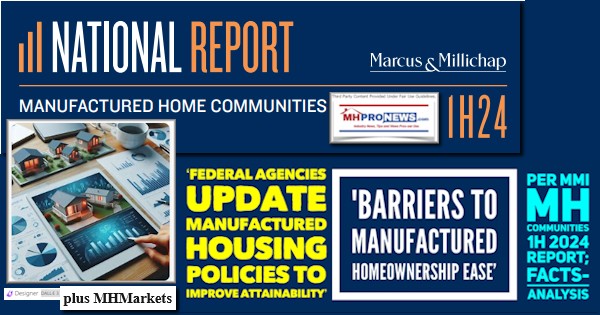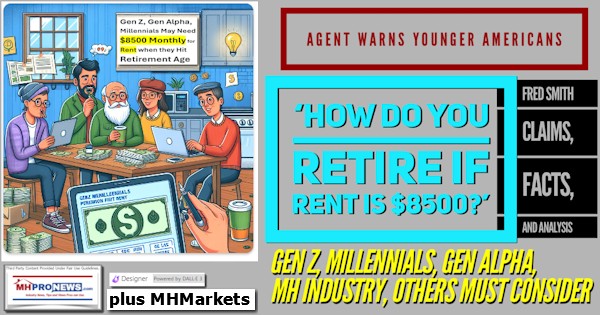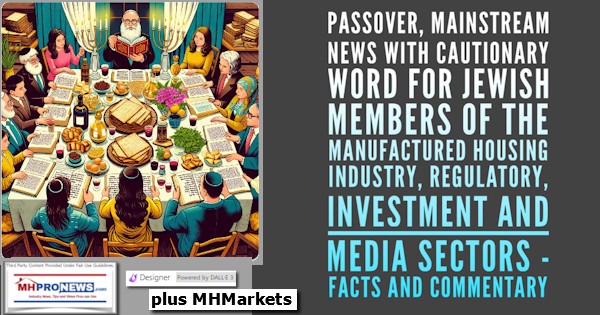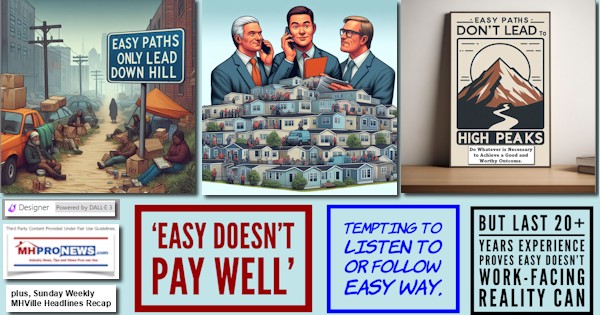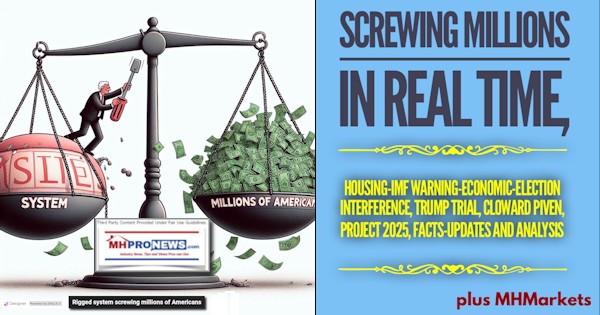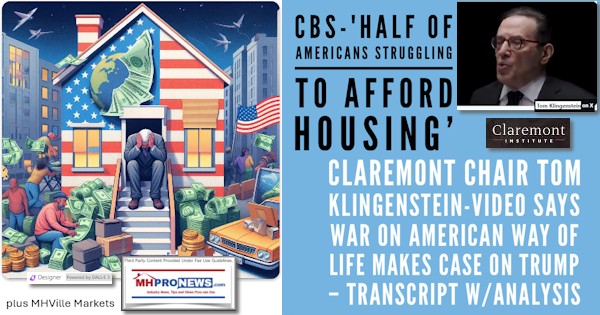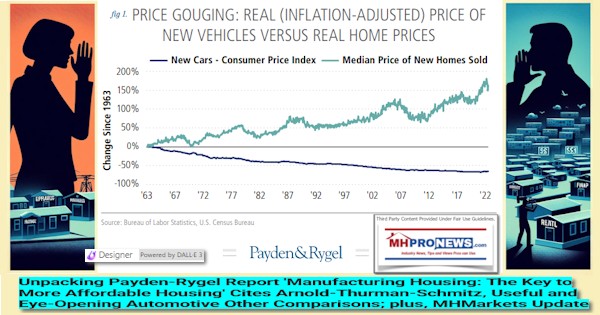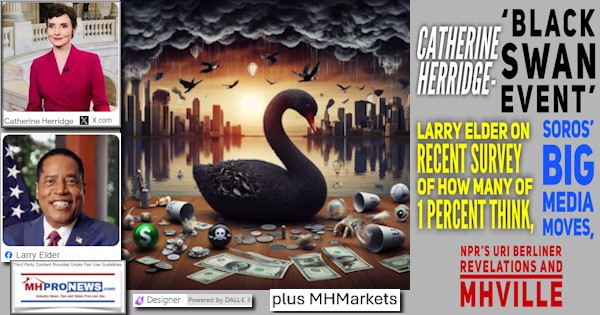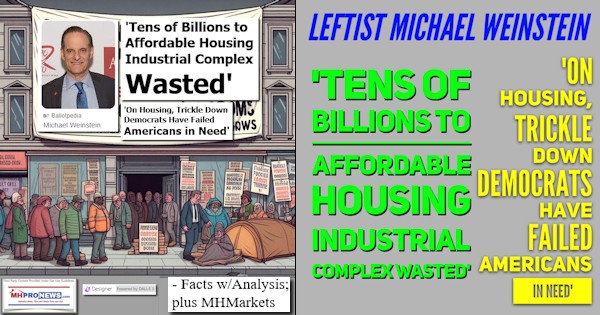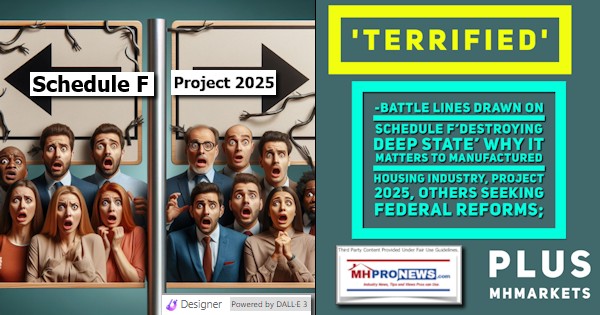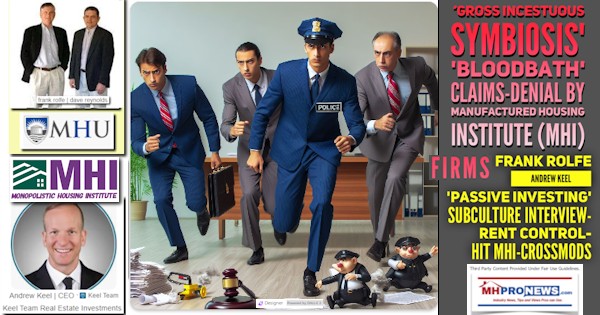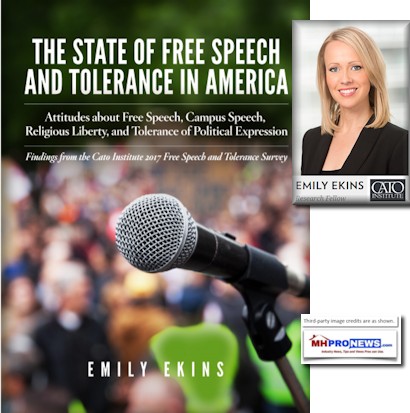 That the nation – and thus Washington, D.C. – are polarized is no secret.
That the nation – and thus Washington, D.C. – are polarized is no secret.
That big pieces of legislation impacting manufactured home owners, businesses, and investors has been stuck in the halls of Congress, due in part to polarization is widely known too.
But just how wide is that gap?
To what degree are people willing to discuss political issues today that impacts everyone?
Those are some of the issues that a YouGov survey recently completed for the Cato Institute dives into in a release to MHProNews.
While Democrats and Republicans have seen various topics differently for many years, the degree of those differences now are also examined in the Cato/YouGov survey.
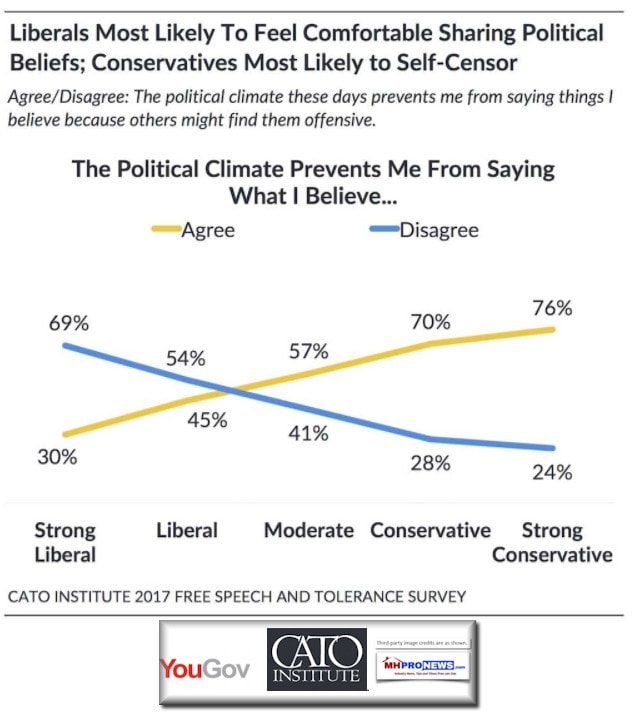
That the contemporary divide impacts lobbying, or legislative efforts ought to be self-evident.
In their release to the Daily Business News, those the Cato/YouGov poll results and some of their top level takeaways are documented. A point that’s implied is also worth noting, as it reflects the challenge that pollsters today face. Namely, if people –more likely on the right, per Cato/YouGov research – are much less willing to reveal their honest views, how does that impact voter surveys in a run-up to any given election?
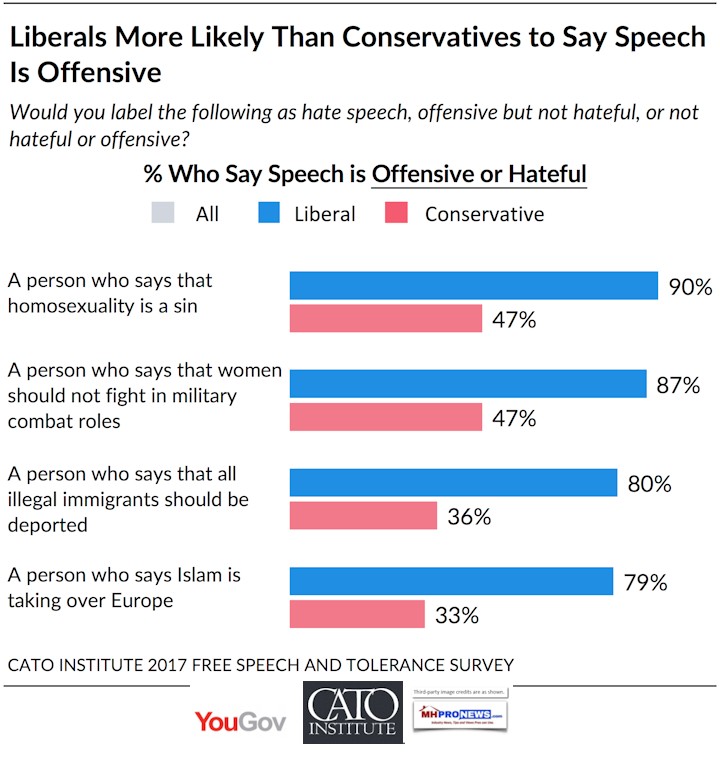
Over Half of All Americans…
Per the Cato/YouGov’s data, over half of all Americans feel silenced by political correctness.
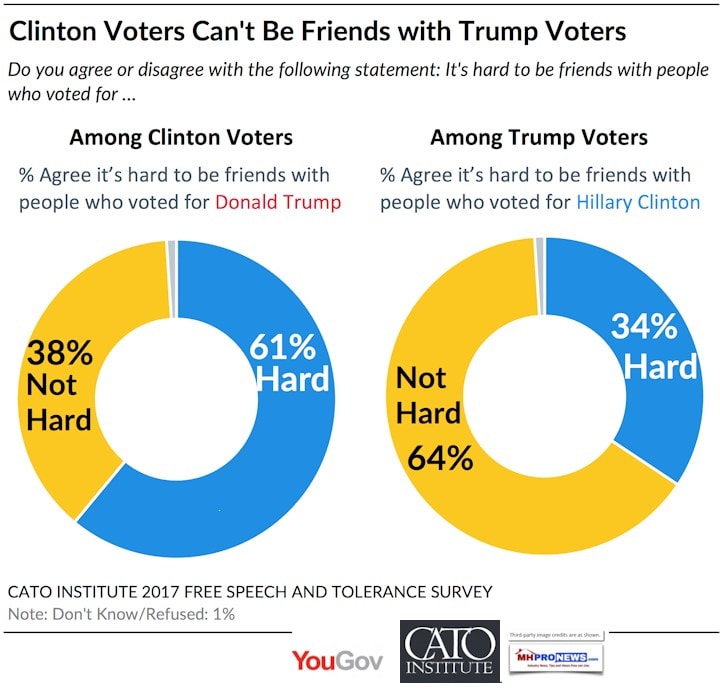
That “self-censorship” caused by the political climate is corrosive of the state of the Union and of free speech at many levels.
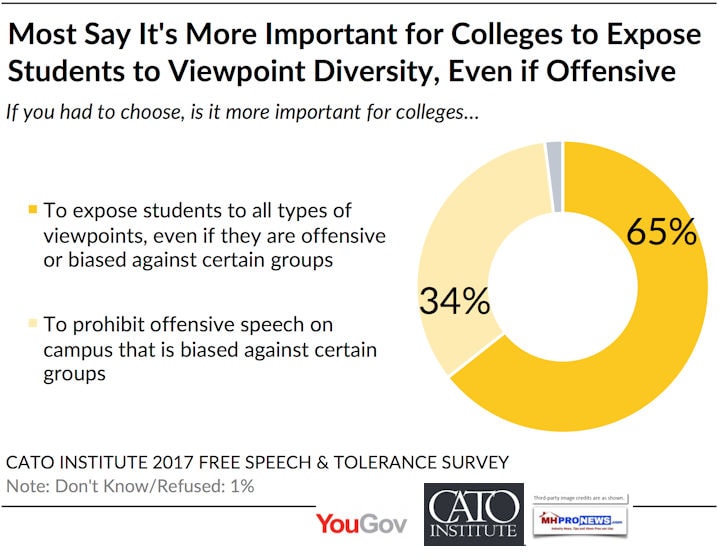
Before diving into written analysis of the top lines of the research, note how the Cato Institute describes themselves as, “a libertarian think tank dedicated to the principles of individual liberty, limited government, free markets, and peace. Our vision is to create free, open, and civil societies founded on libertarian principles. Cato does not undertake lobbying efforts, back political candidates, or engage in political activities. It does not associate with any political organization or party. In order to maintain its independence, Cato does not accept government funding, but receives approximately 80 percent of its operating budget through tax deductible contributions from individuals, with the remainder of its support coming from foundations, corporations, and the sale of books and publications.”
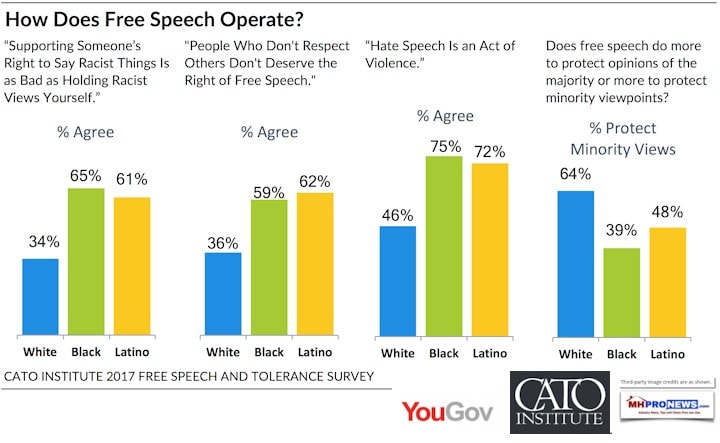
Cato/YouGov Top Lines by Select Categories, Plus Full Survey Download
“Washington, D.C. – The Cato 2017 Free Speech and Tolerance Survey, a new national poll of 2,300 U.S. adults, finds that nearly three-fourths (71%) of Americans believe that political correctness has silenced important discussions our society needs to have. The consequences are personal—58% of Americans believe the political climate prevents them from sharing their own political beliefs,” stated their release.

Clinton Voters Can’t Be Friends with Trump Voters
Nearly two-thirds (61%) of Hillary Clinton’s voters agree that it’s “hard” to be friends with Donald Trump’s voters. However, only 34% of Trump’s voters feel the same way about Clinton’s. Instead, nearly two-thirds (64%) of Trump voters don’t think it’s hard to be friends with Clinton voters.
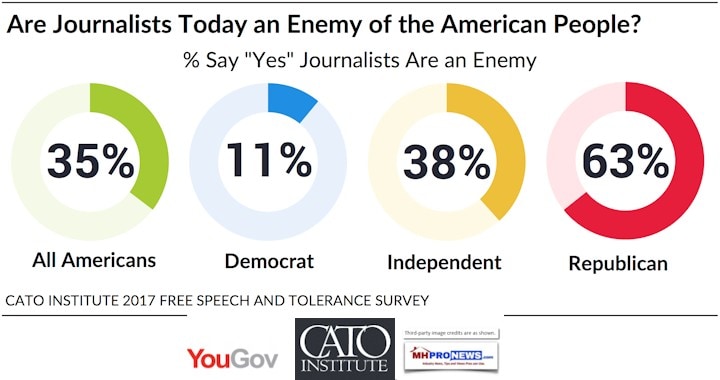
Other Interesting Findings Include the Following
“It follows that a solid majority (59%) of Americans think people should be allowed to express unpopular opinions in public, even those deeply offensive to others,” per the release commentary from Dr. Emily Ekins.
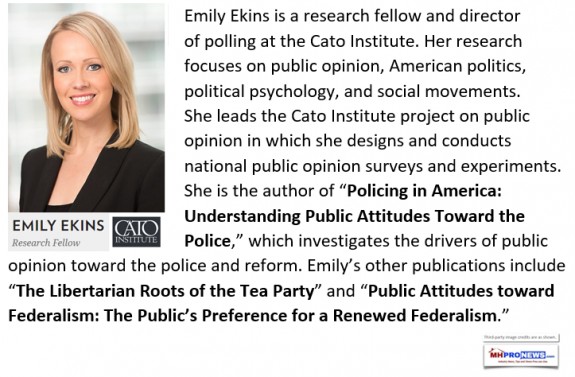
“On the other hand, 40% think government should prevent hate speech. Despite this, the survey also found Americans willing to censor, regulate, or punish a wide variety of speech and expression they personally find offensive, said Ekins.
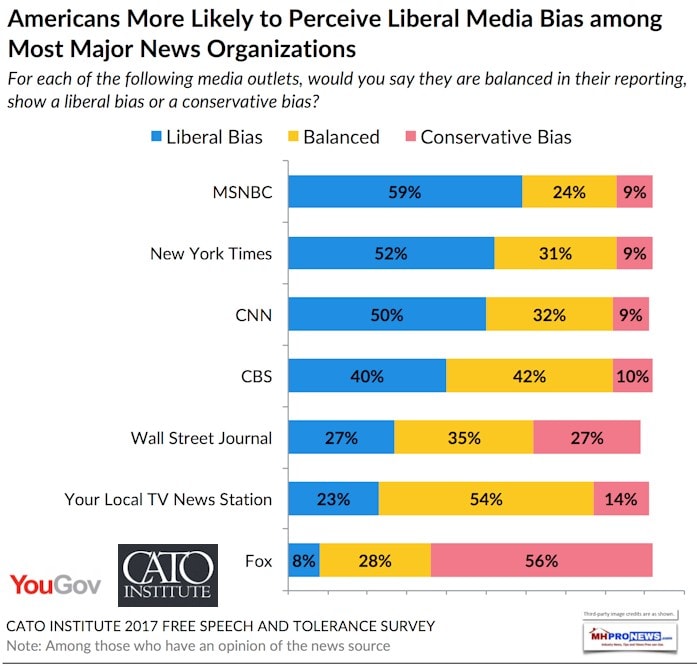
Other bullets:
- 51% of staunch liberals say it’s “morally acceptable” to punch Nazis.
- 53% of Republicans favor stripping U.S. citizenship from people who burn the American flag.
- 51% of Democrats support a law that requires Americans use transgender people’s preferred gender pronouns.
- 65% of Republicans say NFL players should be fired if they refuse to stand for the anthem.
- 58% of Democrats say employers should punish employees for offensive Facebook posts.
- 47% of Republicans favor bans on building new mosques.
Americans also can’t agree what speech is hateful, offensive, or simply a political opinion, said Ekins, per the Cato/YouGov research.
- 59% of liberals say it’s hate speech to say transgender people have a mental disorder; only 17% of conservatives agree.
- 39% of conservatives believe it’s hate speech to say the police are racist; only 17% of liberals agree.
- 80% of liberals say it’s hateful or offensive to say illegal immigrants should be deported; only 36% of conservatives agree.
- 87% of liberals say it’s hateful or offensive to say women shouldn’t fight in military combat roles, while 47% of conservatives agree.
- 90% of liberals say it’s hateful or offensive to say homosexuality is a sin, while 47% of conservatives agree.
“These data show why censoring offensive speech is difficult—Americans can’t agree what speech is offensive or shouldn’t be allowed,” said Cato’s Director of Polling, Ekins.
“What is deeply offensive to one person may simply be a political opinion to another. These data show that if we silence speech that any number of people find offensive, we will shut down a wide variety of important political debates,” Ekins stated.
The complete research by Cato/YouGov with Ekins commentary and analysis is available as a download, linked here. ## (News, research, analysis.)
(Image credits are as shown above, and when provided by third parties, are shared under fair use guidelines.)








